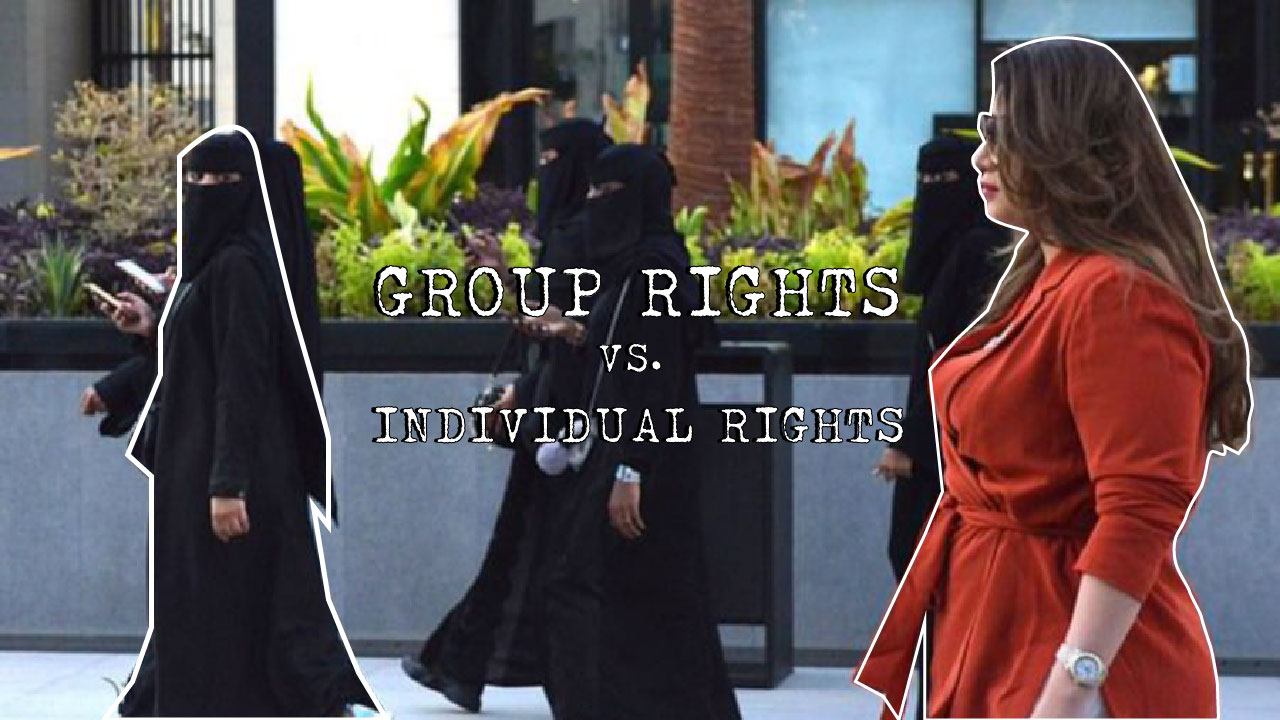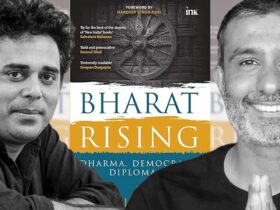Decolonial Ethics:The tussle between individual and group rights.

Not even a day goes by when we do not get some news from Afghanistan when one after the other women are subjected to atrocities. Just the other day in an interview with the Australian broadcaster SBS, the deputy head of the Taliban’s cultural commission, Ahmadullah Wasiq, said women’s sport was considered neither appropriate nor necessary.
Beheshta Arghand who was covered worldwide for becoming the first female journalist to interview a Taliban leader after Kabul’s fall has also fled to Qatar as she feared for her life. “Women – Taliban they don’t accept,” Arghand told Reuters from Qatar. “When a group of people don’t accept you as a human, they have some picture in their mind of you, it’s very difficult.”
Taliban spokesperson Sayed Zekrullah Hashimi is quoted in an NDTV article as saying “a woman can’t be a minister, it is like you put something on her neck that she can’t carry. It is not necessary for women to be in the cabinet – they should give birth. Women protesters can’t represent all women in Afghanistan,”
What are we supposed to do in such a scenario as human beings? Are we supposed to condemn these actions/decisions of The Taliban, or are we supposed to say that The Taliban has their own worldview, while we may disagree with their actions personally, their judgments are contingent on their own variables and moral sensibilities so who are we to demand they change their way of living?
This takes us to the subject of Decolonial Ethics. If we were to take a look at what is happening in Afghanistan from the lens of Decoloniality and their ethical framework what answers can be given?
As per Decoloniality “Western modernity, and the cosmopolitan values entwined with modernity, have an inextricable darker side – coloniality”. It differs from cosmopolitanism that is a direct outcome of Western values, and it rejects the individualism and universalism of cosmopolitan thought.
Decoloniality promotes approaches that reject abstract global designs “in favour of inter-cultural dialogue amongst multiple people(s), including peoples who deem collective and nonhuman entities to be of fundamental moral importance. In addition, decolonial global ethics rejects universality in favour of “pluriversality”. It does this because from a decolonial perspective “universalistic and individualistic forms of cosmopolitan thought occlude and ultimately reproduce the colonial matrix of power.”
Pluriversality is a two-pronged process. Primarily “a value is pluriversal in a first, procedural sense, if it is constructed not through the universalisation of a particular perspective, but through dialogue across plural cultures and cosmovisions. In a second sense, pluriversality connotes a substantive value itself – the value of a world in which other worlds are possible.”
The key aspect of this pluriverse is that it “would be a world in which multiple cosmovisions, worldviews, practices and livelihoods co-exist, a world where no one particular way of living shuts down others.”
Now let us focus a little more on this key aspect of Decolonial ethics where the epistemology “rejects universality in favour of “pluriversality”. It says that a “pluriversal dialogue is not solely oriented towards consensus”. So how does this work out in the case of women in Afghanistan? Is The Taliban a part of the pluriverse or not? If yes why aren’t The Talibani dictates in regards to women covering themselves from head to toe, or them not joining media houses or playing cricket just another cosmovision or worldview?
Decoloniality says we need to aim for a world where “no one particular way of living shuts down others”. If that is the essence of Decoloniality coupled with its outright rejection of “universalistic and individualistic forms of cosmopolitan thought” as they “ultimately reproduce the colonial matrix of power” how does one deal with The Taliban? Do we accept them as a part of the pluriverse? Do we ignore them and not deal with them? Or do we reject them and try to engage with them and promote a better and more humane worldview? And if we are promoting our worldview when we engage with The Taliban are we committing a potential epistemicide?
Or do we consider The Taliban as a group that produces” ‘subaltern knowledges and cultural practices worldwide that modernity itself shunned, suppressed, made invisible and disqualified’?
Decoloniality promotes Border Thinking which insists on giving a “‘preferential option’ to those on the receiving end of colonial rule.” So does Afghanistan qualify as “The British controlled Afghanistan’s foreign policy for 40 years following the end of the second Anglo-Afghan War?” (Afghanistan was never part of the British Empire.)
Decoloniality wants “a world in which many worlds fit” or “a world in which many worlds are possible”. So isn’t The Taliban also part of that pluriverse? It also promotes “an understanding of the inseparability of equality and difference. ‘A world in which many worlds are possible…means that people and communities have the right to be different precisely because we are all equals’”. So are The Taliban and Indians morally equal?
Also “pluriversality sets a standard of legitimacy that would judge as morally wrong any worldview, value or practice that does not accept the existence of, or that works to shut down, other worlds.” So if someone actively works to shut down the worldview espoused by The Taliban would they be wrong?
Another distinct aspect/trait of Decoloniality is the complete absence of the individual from the discourse. One can read paper after paper or book after book but the Decolonial worldview clearly puts the group over the individual. The entire discussion revolves around competing groups jostling with each other in a world suffering because of colonialism and has been reduced to a state of chaos because of limited resources. In such a scenario the individual is completely lost. In fact, individuality is treated as a distinct problem that arises out of colonialism.
Decoloniality and its supporters insist that when a “whim is couched as a right and has the effect of adversely affecting the interests of the group, or the interests of other groups, or the civilisational interest, the individual’s right must necessarily be traded off against the greater good.”
Let us take this claim at face value. So in the case of Afghanistan what is their civilisational interest? Isn’t an Islamic state like the one in Afghanistan a civilisational state too? Wouldn’t the propagation of Islamic civilisational rules be their priority or interest? And if that is the case should the individual rights of women in Afghanistan be traded away for the “greater good” or the Islamic civilisational interest?
That brings us to the tussle between group rights and individual rights. Yes, sometimes the group is given precedence over the individual correctly as is the case with reservations in India. But when you put group rights over individual rights as a norm one can commit grave errors, as is done in the case of Free Speech in India where we have laws like 295A that say “Deliberate and malicious acts, intended to outrage religious feelings of any class by insulting its religion or religious beliefs.—Whoever, with deliberate and malicious intention of outraging the religious feelings of any class of 273 [citizens of India], 274 [by words, either spoken or written, or by signs or by visible representations or otherwise], insults or attempts to insult the religion or the religious beliefs of that class, shall be punished with imprisonment of either description for a term which may extend to 4[three years], or with fine, or with both.]”. So what 295A does is put the right of a religious group over individuals.
Or let us take the case of the debate around the Uniform Civil Code in India. When Muslims in India demand that they be governed by Sharia law for civic matters are they imposing their whim as a group over the individual rights of Muslim women and every other Indian citizen? The answer would certainly be no from a Decolonial Ethics perspective because in the world of Decoloniality every negotiation/exchange happens at the level of groups so it leaves an individual Muslim woman no choice other than either leaving Islam and joining another group or accepting the norms of Sharia.
Supporters of Decoloniality in India say “‘uniformity’ in any realm, including and especially in civil law, is the subject of deliberation, the federal character of this civilisation and the reasons for its survival must be borne in mind before resorting to a European-style ‘national’ treatment of a federal civilisation.”. They say “the whole is as strong as its parts and the survival of the parts is contingent on the existence of the whole.”
Is Sharia law also a subset of that whole? If it is, is the survival of this part also contingent on the existence of the whole? The Indian Decolonialists say “Time and again, the reformers put forward the argument that uniformity is necessary, without explaining why, simply assuming that uniformity is an un-questioned good.”
This is a legitimate question, one that needs to be kept in mind when one talks about designing not just a Uniform Civil Code but having a Universal Objective Moral Pluralism. But the Decolonialists also need to answer when they talk about pluriversality/diversity where do they draw the line? Are we going to allow any practice under the sun under the garb of group diversity? Is Female Genital Mutilation, Nikah Halala, Triple Talaq, Untouchability, Racism, etc to be allowed? Are we going to say there is literally no moral tenet under the sun that has any universal application?
The principle of individual rights works on the framework of the harm principle. So the final question for Decolonialists is that in a world where one group is negotiating against the other how does one function? What will be the legal framework? Will groups govern themselves under decentralized organizations like the All India Muslim Personal Law Board or Khap Panchayats? How will one seek justice? If uniformity is bad as a matter of principle why is a nation or civilizational state good? Why should we not live in small groups with porous borders where different groups negotiate with each other on a constant level?
The line between uniformity and diversity is very fine. The aim of this essay is not to promote any sort of Moral Absolutism. In fact, the aim is to challenge any and all types of absolutisms. Decoloniality definitely raises some vital points when it tells us to question the epistemic foundations of things that have emanated out of the Western World. But, Decoloniality with its group obsession also promotes another kind of Moral Absolutism. So let both sides, whether Decoloniality or their opponents not make the mistake of throwing the baby out with the bathwater. Intellectual isolationism can be extremely harmful. Just because an idea or a meme has come from the West we should not call it bad by default. Let us judge it on its own merits and test it rigourously in the marketplace of ideas. Ignacy Jan Paderewski said, “intellectual isolation follows commercial isolation”. So let a thousand flowers bloom in the marketplace of ideas and may the best meme win.





Connect With Me